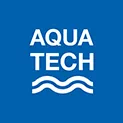An issue of growing concern
The treatment market for per- and polyfluoroalkyl (PFAS) compounds in water could reach up to $3.1 billion by 2030.
In particular, sales of water treatment technologies including granular activated carbon, will be accelerated in the short term, with ion exchange resins and reverse osmosis (RO) membranes after 2025.
That’s according to a new focus report from Bluefield Research entitled: PFAS Contamination in the US: Policy developments, operational risks and technology forecasts 2020-2030.
PFAS are a class of several thousand chemicals, previously used in military, industrial and commercial applications in the US for several decades.
The report called PFAS contamination a “burgeoning crisis” that has become an “issue of growing concern”, with the advancement of contamination site and health testing.
- Plasma technology removes PFAS from water
- PoU tech ranked for PFAS removal in study
- Orange County Water District on PFAS
Several states, including Michigan and New Jersey, have pursued regulatory limits on PFAS concentrations ahead of a "slower-moving federal government" to remediate contaminated sites.
In total, 29 states have made some policy movements on PFAS, according to the report. This is primarily around establishing testing capabilities and requirements.
Meanwhile, the Orange County Water District is investing $1.4 million into what it's calling the "nation’s largest PFAS pilot programme”.
Water treatment technology options for PFAS
Bluefield predicts that granular activated carbon will provide the "lion's share" of technology deployment in the near term.
This is because it’s widely used by water utilities already and is "more cost-effective and easy to install".
Other technologies including ion exchange resins and reverse osmosis are expected to gain traction in the mid to long term, past 2023.
As part of its pilot study, OCWD is testing 10 different carbons and four different resins.
For wastewater treatment, however, the segment and path to address concerns are “unclear” as “it is likely that any significant PFAS biosolid regulation will be many years away”.
The report cited the example of PFAS contamination in Maine and Vermont dairy milk supplies, describing it as a “harbinger for change”. This led to a temporary moratorium on biosolids land application.
- For more information on the PFAS report, click here.






